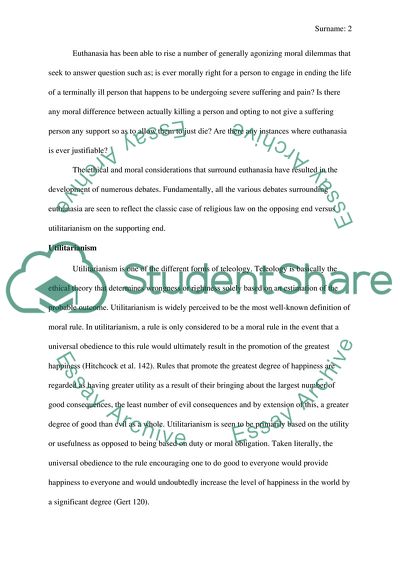Cite this document
(Euthanasia Debate: Religious Law vs. Utilitarianism Essay Example | Topics and Well Written Essays - 1500 words, n.d.)
Euthanasia Debate: Religious Law vs. Utilitarianism Essay Example | Topics and Well Written Essays - 1500 words. https://studentshare.org/politics/1639906-euthanasia-debate-religious-law-vs-utilitarianism
Euthanasia Debate: Religious Law vs. Utilitarianism Essay Example | Topics and Well Written Essays - 1500 words. https://studentshare.org/politics/1639906-euthanasia-debate-religious-law-vs-utilitarianism
(Euthanasia Debate: Religious Law Vs. Utilitarianism Essay Example | Topics and Well Written Essays - 1500 Words)
Euthanasia Debate: Religious Law Vs. Utilitarianism Essay Example | Topics and Well Written Essays - 1500 Words. https://studentshare.org/politics/1639906-euthanasia-debate-religious-law-vs-utilitarianism.
Euthanasia Debate: Religious Law Vs. Utilitarianism Essay Example | Topics and Well Written Essays - 1500 Words. https://studentshare.org/politics/1639906-euthanasia-debate-religious-law-vs-utilitarianism.
“Euthanasia Debate: Religious Law Vs. Utilitarianism Essay Example | Topics and Well Written Essays - 1500 Words”. https://studentshare.org/politics/1639906-euthanasia-debate-religious-law-vs-utilitarianism.


